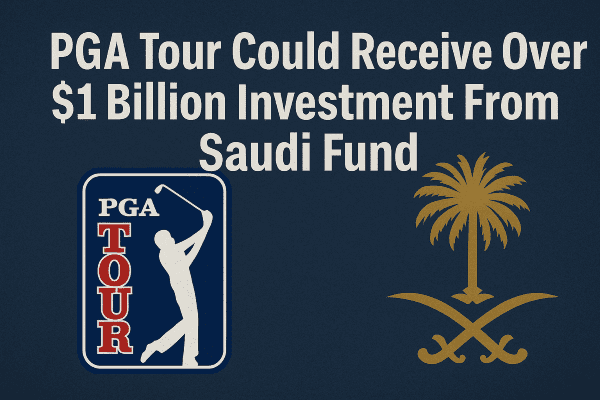The PGA Tour could receive an investment exceeding $1 billion from Saudi Arabia’s sovereign wealth fund, a major development which promises to reshape professional golf. This surprising announcement was made during a Senate subcommittee hearing by the tour’s chief operating officer, Ron Price. He said that while the precise amount of the investment isn’t final, the discussions suggest that the fund could ultimately contribute over a billion dollars. The investment would be a significant milestone in Saudi Arabia’s ongoing efforts to extend its influence in international sports, as demonstrated by its recent forays into soccer and Formula 1 racing.
However, the proposed deal has drawn both interest and criticism from various quarters. The arrangement entails creating a for-profit company that would merge the business ventures of the PGA Tour, the Saudi wealth fund, and the DP World Tour, formerly known as the European Tour. Critics are expressing concern over the increasing foreign influence in golf, a sport traditionally dominated by Western countries. Furthermore, the terms of the agreement are not final, with only a commitment to ending litigation binding so far, leaving much room for negotiation and possible changes in the structure and control of professional golf.
Supporters of the agreement believe that this large-scale investment is essential for the survival of the PGA Tour. According to Price, the legal costs, swelling prize purses to retain top players, and other rising expenses have begun to threaten the financial stability of the tour. Price argues that an injection of funds from the wealthy Saudi fund could ensure the tour’s future.
Despite these arguments, the potential deal is still fraught with controversy. There have been two Senate inquiries and a bill in the House to revoke the tour’s tax-exempt status. Some critics accuse the PGA Tour of hypocrisy, as it has previously condemned Saudi money in golf but now appears to be embracing it. Furthermore, there are concerns about potential breaches of anti-trust laws, and if the Justice Department’s antitrust regulators decide to block the transaction, the deal could face substantial legal hurdles. As of now, the final outcome of this transformative deal remains uncertain.


